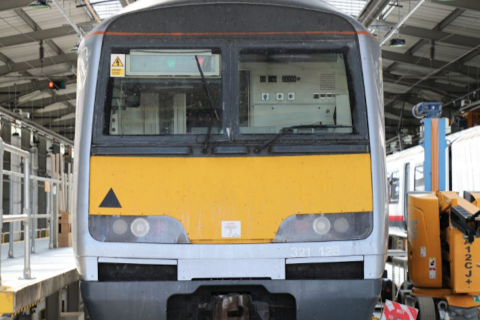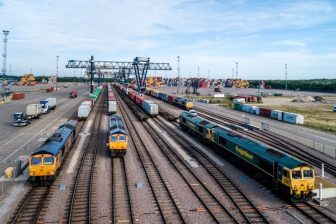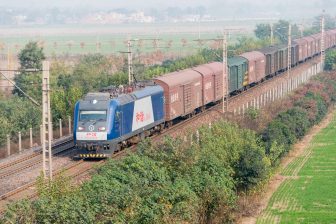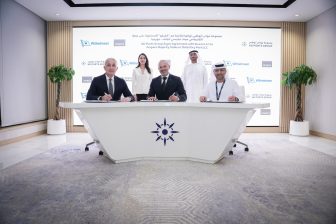
Codename Swift: tailormade light logistics train takes to the rails
Front of class 321 EMU to be converted to parcels operations (Eversholt Rail)
The changing face of rail operations in the UK has taken another step forward. An example of the former high-density commuter passenger electric multiple unit class 321 has been rolled out in a new guise. Rebranded as the Swift Express, the 100mph (160kph) EMU is now ready to serve the fast-growing market in parcels and light logistics.
Do you want to read the full article?
Thank you for visiting RailFreight.com. Become a member of RailFreight Premium and get full access to all our premium content.
Are you already a member?
Having problems logging in? Call +31(0)10 280 1000 or send an email to customerdesk@promedia.nl.





The unit needs a last-mile capability for non-electrified lines, with either a diesel or battery engine. Also, if you go to the north-east of England, you will not find Doncaster. Doncaster is in South Yorkshire.